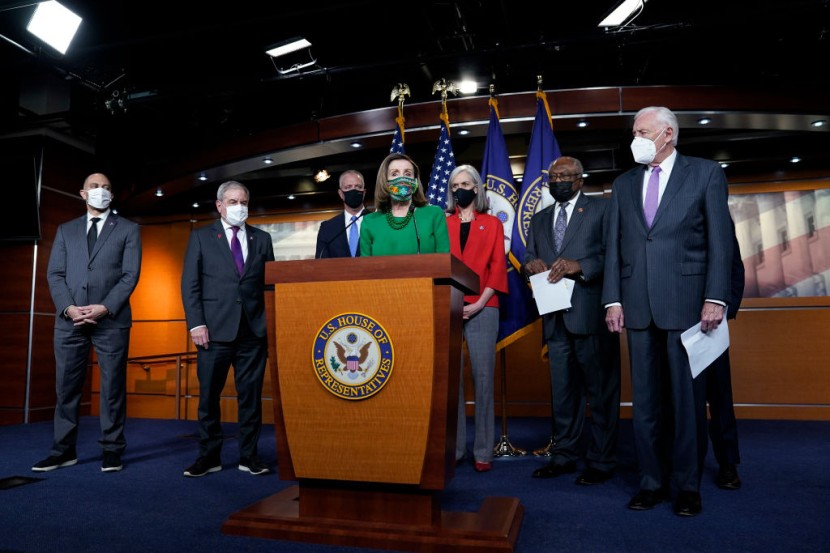
Senate Democrats will not include a plan to increase workers' wages through tax penalties and tax incentives that lawmakers had navigated. This was supposedly a replacement for raising the minimum wage, according to three people familiar with the subject. This is as lawmakers race to pass the $1.9 trillion COVID-19 relief package in the upcoming weeks.
Removal of Minimum Wage Hike From COVID-19 Relief Plan
Top Democrats had been mulling over options to raise workers' wages as part of the coronavirus relief plan. This includes imposing tax penalties on companies with at least $2.5 billion in gross receipts that are paying their workers salaries of at least $15 per hour.
However, Senate Democrats deliberated on Sunday to not implement the proposal to penalize companies for not imposing a $15 minimum wage to their employees. It is the most recent indication that bolstering the federal minimum wage in this Congress is still a very tall order, according to an individual involved in the talks, reported WRAL.
According to Senate Democratic aides, the Senate parliamentarian dealt a potentially lethal blow on Thursday to Democrats' drive to raise the minimum wage. They decided the progressive goal must fall from the $1.9 trillion COVID-19 relief bill, which is slated to be voted in the Senate, reported Boston.
Elizabeth MacDonough, the Senate official who handled the role of making the call, deemed that the minimum wage provision contravenes the so-called Byrd rule. The Byrd rule reigns over the types of measures that could be included in bills passed through the budget reconciliation process. The rule was named after the late Senator Robert Byrd of West Virginia. It bars "extraneous" provisions unrelated to the budget or ones that would increase the federal deficit beyond a 10-year window.
An earlier attempt to hike up the minimum wage ran around the previous week. This was when the Senate's nonpartisan parliamentarian deliberated that the wage increase did not comply with the guidelines that Democrats must follow to pass the legislation without GOP backing. Top Senate Democrats had begun working on the tax proposals in order to find a way to act in accordance with Senate rules, reported The Wall Street Journal.
Democrats had a hard time developing the tax provisions in the proposal, according to sources. They were looking at other probable avenues to increase the rate. This underscores the dire chances of increasing the wage after the Senate parliamentarian decided their earlier plan does not fall within the rules of budget reconciliation. Budget reconciliation is a process that enables Democrats to pass the $1.9 trillion COVID-19 relief bill with mere 51 votes.
President Joe Biden did not find the outcome favorable but respected the parliamentarian's ruling, according to White House press secretary Jen Psaki. The Senate has a long tradition of following the parliamentarian's decisions with few exceptions. This is a history that is patrionized by traditionalists like President Biden, who is a 36-year Senate veteran.
Democrats narrowly dominate a 50-50 Senate. With Biden's support, Democrats included a measure that would increase the federal hourly minimum wage from $7.25 to $15 by 2025. However, the decision dealt them a defeat. It possibly makes it easier for the party to pass a sweeping relief bill since at least two senators were against the wage hike.
Related Article : $1,400 Stimulus Checks to Be Voted on Friday, Gets Unprecedented Push
© 2026 HNGN, All rights reserved. Do not reproduce without permission.








